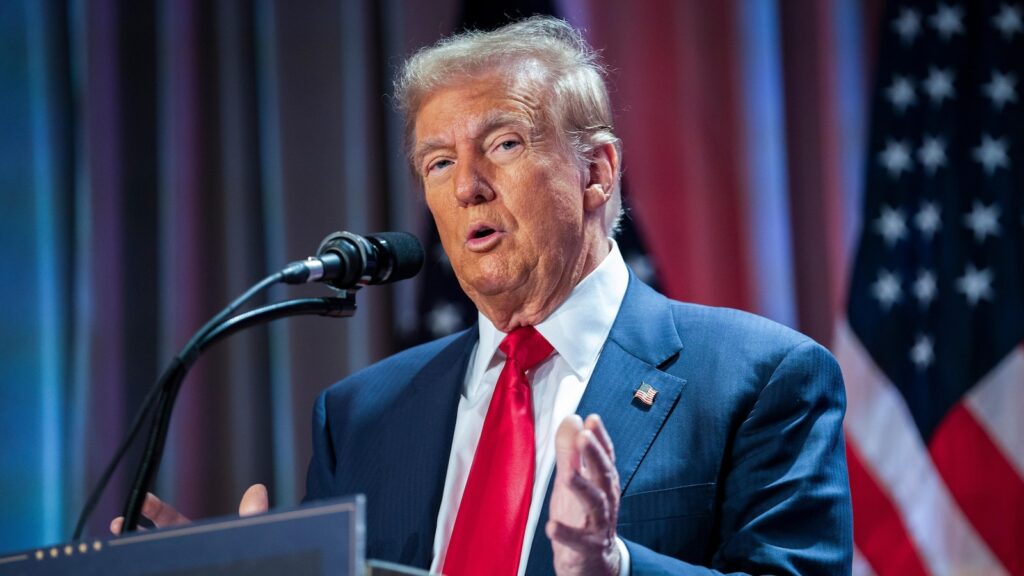[ad_1]
Two days after President-elect Donald Trump threatened to impose sweeping new tariffs on Canada and Mexico as part of his effort to crack down on illegal immigration and drugs, he says he spoke with the Mexican president and she “agreed to stop Migrati…
WEST PALM BEACH, Fla. — Two days after President-elect Donald Trump threatened to impose sweeping new tariffs on Canada and Mexico as part of his effort to crack down on illegal immigration and drugs, he said he spoke with the Mexican president and she “agreed to stop Migration through Mexico.”
In a post on his Truth Social account Wednesday evening, Trump said this was “effectively closing our Southern Border.” He called it a “very productive conversation!”
Mexican President Claudia Sheinbaum confirmed that she spoke with Trump, calling it an “excellent conversation.”
“We discussed Mexico’s strategy on migration issues, and I told him the caravans are not reaching the northern (U.S.) border, because Mexico is taking care of them,” Sheinbaum wrote on social media. “We also talked about reinforcing cooperation on security issues, within the framework of our sovereignty, and the campaign we are carrying out to prevent fentanyl consumption.”
It was unclear what impact the conversation will have on Trump’s plan to impose tariffs.
Trump on Monday said he would impose a 25% tax on all products entering the country from Canada and Mexico as one of his first executive orders upon taking office on Jan. 20. In announcing his plans on his Truth Social site, he railed against an influx of migrants crossing into the U.S. illegally, even though southern border apprehensions have been hovering near four-year lows.
Illegal migration across the Mexico border is down in part because the Biden administration secured some stepped up cooperation on stemming migration from Mexico — the sort Trump seems to be celebrating.
Arrivals at the U.S.-Mexico border have dropped 40% from an all-time high in December. U.S. officials mostly credit Mexican vigilance around rail yards and highway checkpoints.
___
Associated Press writers Jill Colvin in New York and Mark Stevenson in Mexico City contributed to this report.
[ad_2]
Source link

